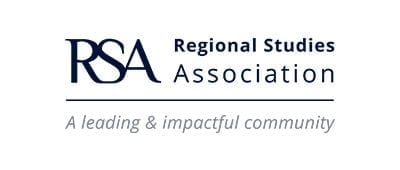Practice and Research Symposium: Social Service Responses to Migration
This two-day symposium will discuss how social services recognise and respond to migration. Against a backdrop of conflict, Covid-19, anti-migration feeling and environmental crisis, it will exchange current practice and research about reducing the marginalisation of migrants and tackling inequalities in service provision.
The focus is on projects and services that increase well-being and reduce the social vulnerability faced by migrants, including in relation to community inclusion, domestic abuse, child protection, youth work, family services, poverty and emergency support, humanitarian aid, housing, disability assistance and social care. The event’s informal, interactive format is designed to help participants build new contacts, deepen their knowledge and receive input on their work.
Contributions from people using services, practitioners, activists and researchers are warmly welcome and can focus on any part of the world. Participation by migrants and migrant organisations is particularly encouraged. Presentations can cover practice or research projects, research findings, theoretical analysis or methodological reflections.
Possible ideas include:
- Migrant understandings and experiences of using social services
- Groups, services and self-help networks created by people from migrant communities
- Improving access to social services by people from migrant communities, including challenging legal, policy, organisational and practice barriers
- Specialist projects, programmes and services for migrant groups
- Protests and campaigns to improve social service practice
- Intersectional, anti-racist and anti-oppressive approaches in practice with migrants
- Interventions to reduce harm and risk in countries of origin
- Migrant workforce in social services
- Transnational issues and cross-country co-operation in social services
- Collaboration between social services and other sectors
- Community work to address xenophobia and anti-migrant sentiment
- Responses by social services to rapid displacement
Financial support from the Regional Studies Association makes it possible to offer this event free of charge, including the welcome dinner, lunches and refreshments. Participants will need to cover their own travel and accommodation costs.

Conference jointly sponsored by:




Timeline
1 March – Deadline for abstracts
Early March – Acceptance notification.
Mid-March – Registration opens (no registration fee)
30 April – Registration deadline
10 May – Welcome dinner
11-12 May – Conference
Symposium Organisers
Department of Social Work, Democritus University of Thrace,
Dr Michael Rasell, Institute of Educational Science, University of Innsbruck, michael.rasell@uibk.ac.at
Dr Agnieszka Rydzik, University of Lincoln, arydzik@lincoln.ac.uk
Getting to Komotini
Komotini can be reached via bus or car from Thessaloniki, which has an international airport, or Alexandroupoli (transit flights via Athens).
WizzAir, EasyJet and Ryanair fly to Thessaloniki from numerous European airports, including London Airports (EasyJet also flies from Manchester).